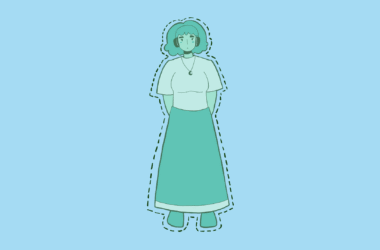It would only have taken a single spark on the wooden fire escape for an entire block in downtown Sackville, New Brunswick, to go up in flames. A primarily student-inhabited apartment building near Mount Allison, Canada’s leading liberal-arts University, burned for over 24 hours on Friday, Aug 11, 2006.
The building where the fire began was a popular housing choice among upper-year students because it offered low rent and close proximity to campus, but its age and condition had worried many residents for years. A graduate of Mount Allison, Adam Reid, explains: “We all thought it was just a matter of time before something like this happened – the building was in rough shape. It was very lucky that no one got hurt.” Mount Allison University has since called for more thorough health and safety inspections of off-campus housing properties.
According to Mallory Baxter, the school’s vice-president external and a resident of the building affected, the situation could have been prevented by proper inspection and adherence to safety codes. “Students must be made aware of their landlord’s responsibilities and need to take an active role in ensuring the safety and upkeep of their residences,” she insists.Last year in Montreal, when a fire alarm went off in an off-campus housing building on Avenue des Pins in the middle of the night, tenants were shocked when no fire trucks appeared after an hour and their superintendent was nowhere to be found. As it turned out, the building had not even been connected to the fire department’s system.
University students have the same rights to basic safety standards as any other tenants. The unfortunate reality, though, is that student accommodations often fail to meet even minimal safety requirements. Student housing in the McGill ghetto is no exception.
A hovel to call your ownPrimarily student-dominated housing is notorious for poor conditions. Students are often attracted to the lower prices, while sacrifices made in quality and safety are frequently overlooked. “There should not be a trade-off between safety and affordability,” Baxter comments, emphasizing that this is a nation-wide epidemic, not an isolated problem at universities. “Apartments today are overcrowded. A lot of apartments that would normally be rented to two or three people are being rented to four or five. This is a problem that has become synonymous with students in post-secondary institutions in Canada.”
With the knowledge that repairs will only need to last until the new students move in, it is not surprising that superintendents sometimes cut corners in their building maintenance and upkeep. “Students are much more destructive than other tenants,” Mallory Dash, a U3 political science major observes. “I mean, what incentive is there for their landlords to invest in the conditions of apartments that will likely be poorly maintained by their inhabitants?”.
Dude, where’s my landlord?Many students face the problem of absentee landlords who have little or no involvement with their tenants outside of collecting rent. “Getting things done quickly is difficult,” says Katie Crossley, a U2 sociology student whose St. Famille landlord lives off of the island. “Especially when it can take up to a week for him to get back to you in the first place, much less make the journey into the city,” she adds. With many landlords owning more than one residence, even those that live in the building can be difficult to reach in an emergency.
While McGill students often snag beautiful apartments with hardwood floors and built-in window seats, student housing in Montreal can also mean neglected buildings and missing landlords. For example, Eve, a U3 international development student, lived in a building on Milton and Durocher. Her apartment’s heating broke in the middle of the winter and it was weeks before her landlord finally came in to make repairs.
The Pa-rental unitsAlthough most parents would consider themselves vigilant about their son or daughter’s living quarters, the truth is that they rarely take even a second look at anything above the visual appeal and convenience of the location. While parents usually pay the rent, the sheer distance that often exists between them and the institution can prevent Mom and Dad from having a more active role. “Parents need to start being more skeptical of their children’s living arrangements,” insists U2 economics major, Lindsay. “Second-year students are in that stage where responsibilities are being transferred out of their parent’s hands, and many make the mistake of assuming that their children have a good handle on their housing arrangements. More often than not, they don’t.”
Régie du loge…what?Students are a particularly vulnerable group in this situation as many are first-time renters and have little knowledge of their rights as tenants. First-timers often don’t know what questions to ask, or who to go to when problems arise in their living quarters.
“We spend a lot of time educating students on how to make their own homes secure,” explains Janice Johnson, McGill’s Student Housing office manager. “Challenging strangers when they walk into buildings… meeting the pizza delivery person at the front instead of buzzing them up, so that they don’t have to wander around the building, you know, sensible stuff that students are going to need to take out to take into the real world.”
For problems with housing, the McGill Off-Campus Housing Office is a useful resource for students. Although it is conveniently located near the corner of University and Pins, many students are not aware of its existence. And, if a problem becomes serious enough, it seems that an even smaller number of students know to report it to the Quebec housing board, better known as Le Bureau de la Régie du Logement du Québec.






